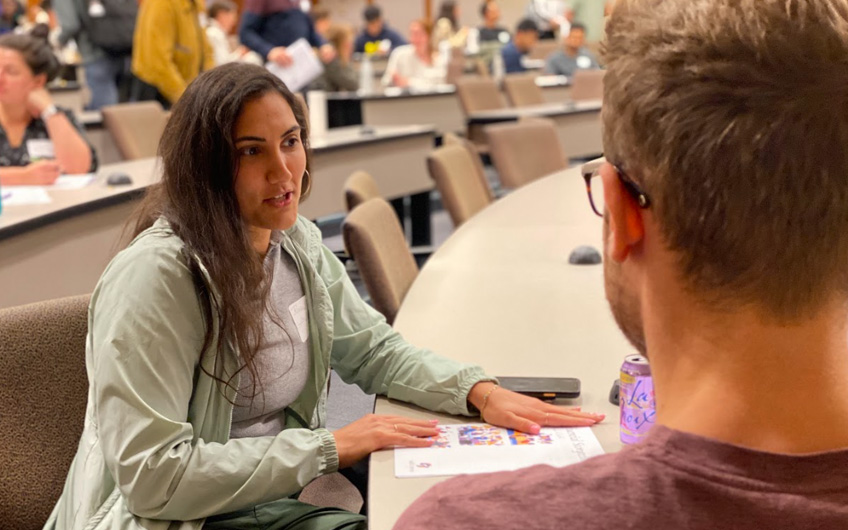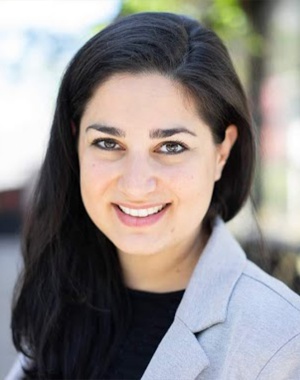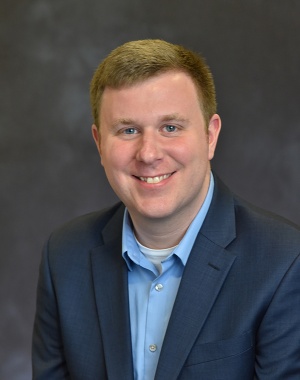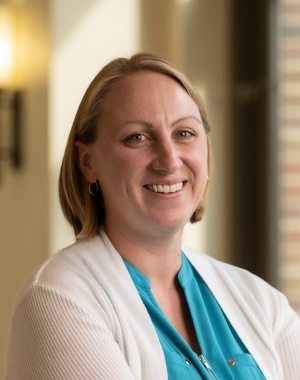
Grant writing and proposal development, once useful skills, have become essential for international development professionals, according to Ford School lecturer Amy Beck Harris. “As international organizations undergo sweeping changes, the actual skill set of writing competitive grant applications is more important than ever—not only for getting funding, but for getting a job,” she says emphatically.
This will be the focus of the fall 2025 Aid and Development Workshop series, hosted by the Ford School’s International Policy Center (IPC) and cosponsored by the Center for Local, State, and Urban Policy (CLOSUP). The series is designed to help students build the skills they need to thrive in a dynamic international policy landscape.
Dan Ellis, IPC’s assistant director, echoes Harris’s sentiments, pointing out that for international development professionals, “there’s never enough money ... You’re going to have to make decisions to make a compelling pitch to be the recipient of program funds.”
Harris and Ellis, both of whom are former international development practitioners, designed the four-part workshop series to mimic the high-pressure team-based dynamics of real-world grant-seeking. They tapped into the expertise of public management and budgeting expert Stephanie Leiser, who serves as the director of the CLOSUP, making this series especially notable for its cross-disciplinary and broad geographical appeal.
“Whether it’s hyper-local, international, or intergovernmental, being able to write a compelling grant application is relevant for our graduates,” says Harris.
Balancing budgets and narrative
The fall 2025 workshop equally emphasizes the technical aspects of writing a proposal and effective budgeting—a combination frequently demanded in a real-world context, but rarely developed together in academic settings. “Not only do you have to craft a compelling, evidence-based narrative, you also have to create a budget that is both strategic and realistic,” notes Harris.
Leiser will lead sessions on cost proposals and budget strategy, while Harris will focus on the technical components and strategic proposal design.
“Stephanie and I have both written and reviewed multi-million dollar budgets and technical narratives,” Harris explains. “This workshop lets us guide students through the process together so they understand how the two halves truly have to align.”
The compressed, hands-on format—culminating in a judged, team-based proposal competition—directly echoes the current reality of the field: time pressure, resource constraints, and the need to work efficiently across teams. “Real world grant proposals are very much a team effort,” Harris points out. “Not only do they have to write a grant, they have to do it as a team in a way that is incredibly efficient and compelling.”
Ellis explains that the workshops don’t just prepare graduates for current challenges—they equip them with foundational, transferable skills that remain invaluable no matter how the landscape shifts:
“No matter your focus area, it forces you to ask questions like, ‘What are your core priorities?’... What is the essential of what you want to do with your program?’”
Evolving series fills important gaps
The workshop series was born more than four years ago out of a conversation between Ellis and Harris who saw a need for practical skills-building for future international development professionals. Their goal was ambitious yet pragmatic: to identify the real competencies employers look for and give students hands-on opportunities to build those skills.
“We tried to respond to needs that we—as former practitioners—have observed,” Harris says. “We want to set our students up to be as successful and prepared as they can.”
Harris has led many of the past workshops herself and has also partnered with respected practitioners from organizations like USAID and Chemonics. These industry insiders led interactive sessions and hosted career breakfasts, giving students the opportunity to engage directly and ask about the day-to-day realities of working in the field.
Harris is quick to note how the workshops have always evolved to respond to areas of opportunity for students to build skills demanded by the international development job market, and in response to the shifting international policy landscape. One year, the series focused on applied management and strategic design; the next, it pivoted to challenges in measuring democracy and governance program outcomes. Other themes have highlighted the intersection of development and diplomacy and tools for locally-driven program design.
“We adapt over time,” Harris explains. “It’s a responsive model rooted in practitioner insight and student curiosity, and carefully designed to address what students need to succeed for whatever comes next.”


